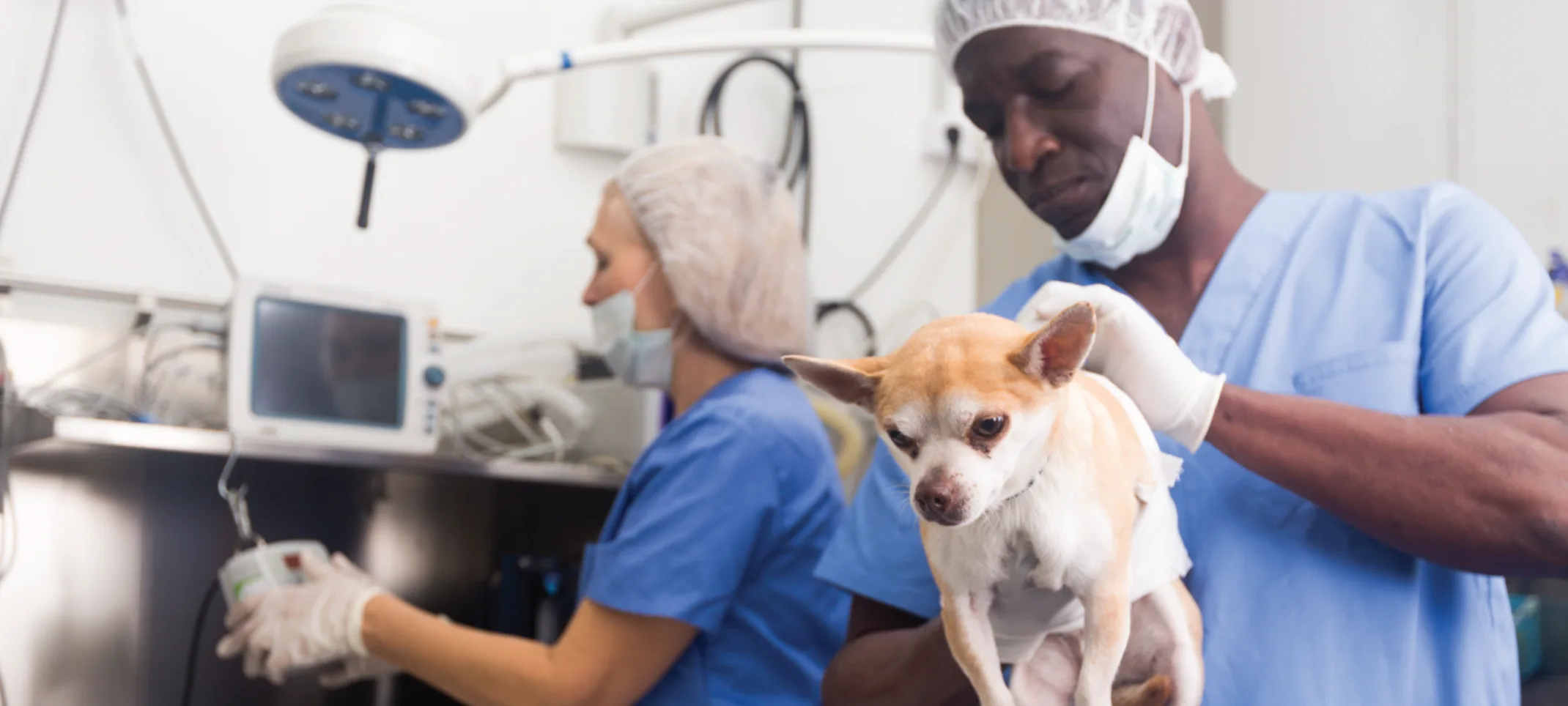South Asheville Veterinary Emergency & Specialty
Anesthesiology and Pain Management
Anesthesia and pain management allows us to perform surgery and other important, life-saving procedures while your pet rests comfortably, without stress or anxiety.

Overview
Anesthesia and pain management allows us to perform surgery and other important, life-saving procedures while your pet rests comfortably, without stress or anxiety. Although these tools are invaluable, we understand that the thought of your pet undergoing anesthesia can be concerning. Our anesthesia team, led by a board-certified veterinary anesthesiologist, takes the utmost care to tailor anesthesia to what is most appropriate for each individual patient.
How does South Asheville Veterinary Emergency and Specialty keep my pet safe during anesthesia?
Steps we take to safeguard your pet include:
Preanesthetic exam — A thorough exam is performed on every pet prior to anesthesia, so we can detect any abnormalities that may cause increased anesthetic or surgical risks.
Preanesthetic diagnostics — Blood work, urinalysis, diagnostic imaging, and other diagnostics can be performed as needed to gain a more in-depth understanding of your pet’s health status and how it may impact anesthesia.
Customized anesthetic protocol — Using the information gained, our veterinary anesthesiologist chooses the most appropriate anesthetic medications and techniques to minimize the likelihood of complications.
Dedicated anesthesia technician — A dedicated anesthesia technician will remain by your pet’s side throughout their procedure.
Anesthetic monitoring — Before, during, and after anesthesia, an anesthesia technician will continually monitor your pet. Should any concern arise, your pet’s technician will immediately notify the anesthesiologist.
Is my pet in pain?
Pain can significantly impact a pet’s quality of life. Whether acute, such as a consequence of surgery, or chronic, such as arthritis pain, we believe that no animal should suffer. Every patient is evaluated for pain upon admission, and a pain management strategy is devised.
Like humans, animals can experience different types of pain:
Acute pain — Acute pain is directly associated with an injury, such as the pain a pet feels when they cut a paw pad.
Chronic pain — Pain that persists for several days, weeks or months, can be considered chronic, and has a significant impact on your pet’s wellbeing. Arthritis is a common example of chronic pain in dogs and cats.
Neuropathic pain — Pain originating from the nervous system itself is particularly uncomfortable, and can limit normal mobility, function, and your pet’s quality of life.
It can be difficult to detect when your pet is in pain. Subtle changes may not be obvious, and many animals instinctively hide their pain. Signs to watch for include:
Decreased activity
Mobility issues
Agitation or aggression
Increased sleeping
Reluctance to jump on or off furniture
Reluctance to go up or down stairs
Decreased appetite
Hiding
Shying away when touched or petted
If you believe your pet is in pain, contact your primary veterinarian for a thorough pain evaluation.
How will my pet’s pain be treated?
Veterinary pain management has come a long way, and a variety of medications and therapies are now available to treat pain in pets. Our anesthesiology and pain management team will likely recommend a multimodal pain management strategy that approaches your pet’s pain from multiple angles. Your pet’s treatment plan may include:
Different classes of analgesic medications
Acupuncture
Physical rehabilitation
Laser therapy
Heat and cold therapy
Our anesthesiology and pain management team works closely with other specialists throughout our hospital, such as veterinary surgeons, neurologists, and internists, to ensure every pet who is treated at SAVES is as comfortable as possible.
If your pet requires an anesthetic procedure, you can rest assured that their safety and comfort is our team’s top priority. Contact us to schedule your pet’s procedure.
